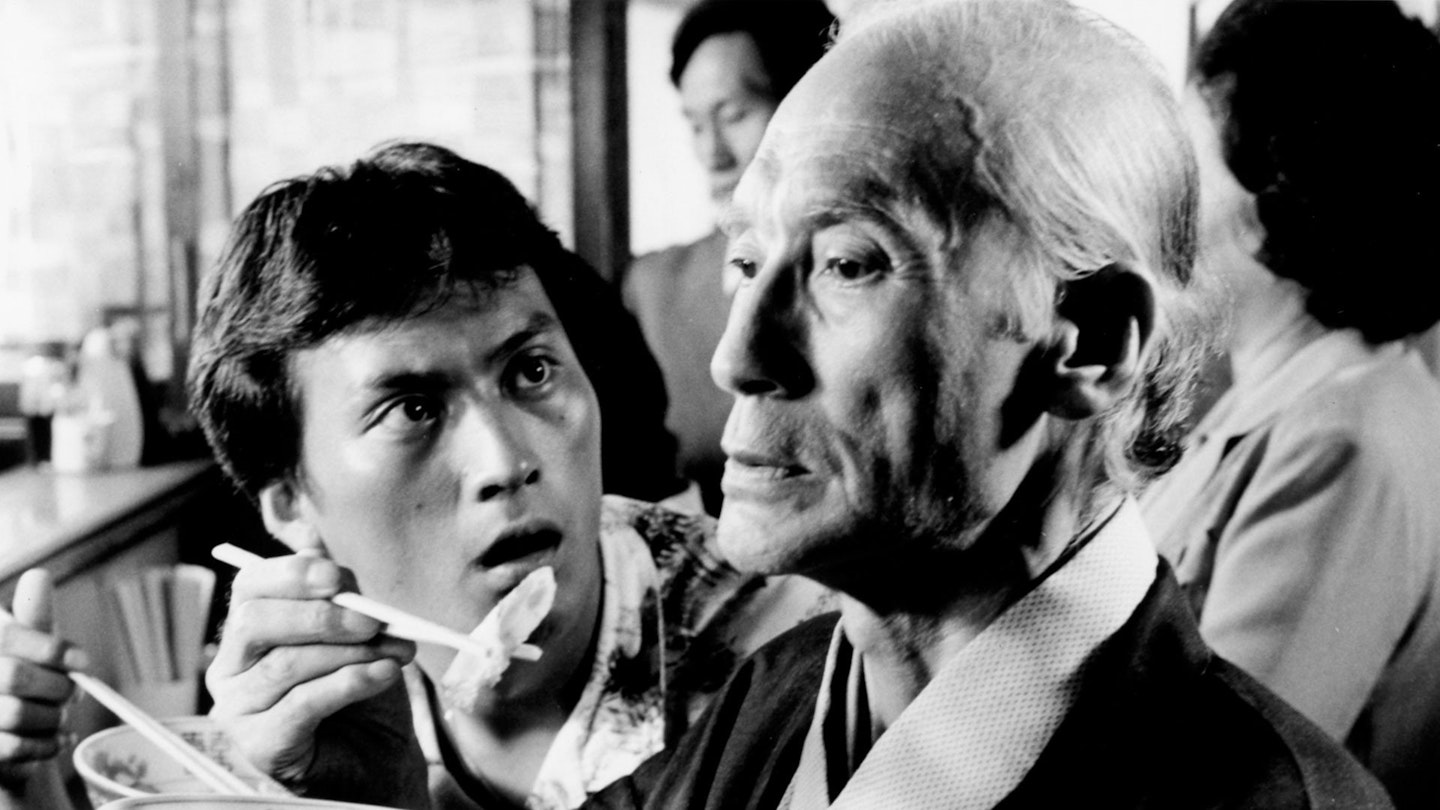Having acted in films as different as Nicholas Ray's 55 Days at Peking and Koji Wakamatsu's The Notorious Concubines, Juzo Itami made his directorial debut with the gently subversive satire, The Funeral, in 1984. In collaboration with his wife, Nobuki Miiyamoto, he further lampooned Japanese society in A Taxing Woman and A Taxing Woman Returns before Minbo hit such a raw nerve within the yakuza community that many were convinced that Itami's mysterious death was a mob hit.
Tampopo (from the Japanese for dandelion) was the least socially corrosive of Itami's pictures and its inspired movie pastiches have made it an enduring cult favourite. But Tsutomo Yamazaki's quest was primarily intended to explore the extent to which Occidental influences had pervaded Japanese culture and to restore a little pride in fast-passing traditions.
Itami stuffed his noodle' Western with homages to the likes of Shane and the spaghetti' works of Sergio Leone, as well as such chambara classics as Akira Kurosawa's Seven Samurai and Yojimbo, which were, of course, recast as the Westerns The Magnificent Seven and A Fistful of Dollars. Consequently, with his cowboy hat and long-horned truck, Yamazaki comes across as a hybrid of Alan Ladd, Clint Eastwood and Toshiro Mifune, who is as ready to rescue Miiyamoto from the bullies blighting her business as he is to sit at the feet of noodle master Ryutaro Otomo to learn the ancient rituals involved in the preparation and consumption of the perfect dish.
But Itami refused to be tied down by his central storyline and he peppered the action with delightful diversions, which reinforced his contention that food was a sacred part of Japanese life that should not be profaned by the junk products whose speedy convenience mattered more than their gastronomic quality and socio-cultural significance. He even found room for a movie parody here, too, with gangster Koji Yakusho's foodie romps with mistress Fukumi Kuroda designed to mock the fetishistic eroticism of Nagisa Oshima's Ai No Corrida.
